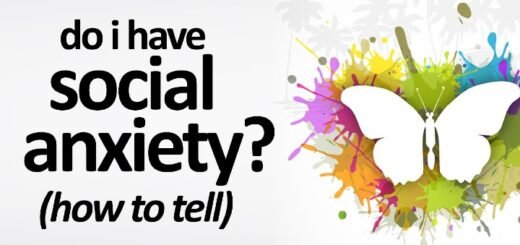Top Medications for Managing Social Phobia Effectively
Social phobia, also known as social anxiety disorder, significantly impacts individuals’ daily lives, making even routine social interactions daunting. In New Zealand, many people seek effective treatments to manage their symptoms, and medications remain a common option. This overview explores the most frequently prescribed medications for social phobia, examining their effectiveness and potential side effects, while also highlighting the importance of a comprehensive treatment approach that includes therapy and lifestyle changes.
For New Zealanders grappling with social anxiety, resources such as Social Phobia Solutions provide valuable insights into available treatment options. Understanding the role of medications in alleviating social phobia symptoms can empower individuals to make informed decisions about their mental health care. By combining medication with supportive resources like Social Phobia Solutions, individuals can navigate their journey toward overcoming social anxiety more effectively.
Understanding Social Phobia
Defining Social Phobia
Social phobia, or social anxiety disorder, is characterized by an intense fear of social situations where one may be judged or scrutinized. Individuals with social phobia often experience significant distress when faced with public speaking, meeting new people, or even attending social gatherings. This condition can severely impact daily life, hindering personal and professional relationships.
Symptoms of Social Phobia
Common symptoms of social phobia include excessive sweating, trembling, rapid heartbeat, and nausea in social situations. These symptoms may lead individuals to avoid social interactions altogether, resulting in isolation and decreased quality of life. Recognizing these symptoms is crucial for seeking appropriate treatment and support.
Impact on Daily Life
The impact of social phobia extends beyond individual discomfort. It can affect education, employment, and personal relationships. Many individuals with social phobia find it challenging to pursue career opportunities or engage in social activities, which may lead to feelings of loneliness and depression. Understanding the effects of social phobia helps in addressing the need for effective interventions.
Seeking Help for Social Phobia
If you or someone you know is struggling with social phobia, seeking help is essential. Consulting a mental health professional can provide insight into effective treatment options. In New Zealand, various resources are available, including online platforms like Social Phobia Solutions, that offer support and information for those affected by this condition.
Medications for Social Phobia
Overview of Medication Options
Medications can play a vital role in the management of social phobia. There are several classes of medications commonly prescribed, including selective serotonin reuptake inhibitors (SSRIs), benzodiazepines, and beta-blockers. Each of these medications works differently and can be effective in reducing anxiety symptoms associated with social situations.
Selective Serotonin Reuptake Inhibitors (SSRIs)
SSRIs are often the first-line treatment for social phobia. These medications work by increasing serotonin levels in the brain, which can help improve mood and reduce anxiety. Common SSRIs prescribed for social phobia include fluoxetine, sertraline, and escitalopram. Studies have shown that SSRIs can significantly reduce symptoms of social anxiety and improve overall functioning.
Benzodiazepines
Benzodiazepines, such as lorazepam and alprazolam, are another option for treating social phobia. These medications are fast-acting and can provide quick relief from anxiety symptoms. However, they are typically prescribed for short-term use due to the risk of dependence. It is essential for individuals to discuss the potential risks and benefits with their healthcare provider.
Beta-Blockers
Beta-blockers are primarily used to manage physical symptoms of anxiety, such as rapid heartbeat and shaking. Medications like propranolol can be particularly effective for individuals who experience performance anxiety, such as public speaking. While beta-blockers do not address the psychological aspects of social phobia, they can help reduce the physical symptoms that often accompany anxiety.
Effectiveness of Medications
Success Rates of Medication Treatments
The effectiveness of medications for social phobia varies among individuals. Research indicates that a significant percentage of those treated with SSRIs experience a reduction in symptoms. In clinical studies, SSRIs have shown success rates ranging from 50% to 70%, making them a popular choice among healthcare providers.
Long-Term vs. Short-Term Use
While medications can be effective in managing symptoms, they may not be a long-term solution for everyone. Some individuals may find relief from symptoms and choose to taper off medication, while others may require ongoing treatment. It is important to have regular follow-ups with a healthcare provider to assess the effectiveness of the chosen medication and make necessary adjustments.
Combining Medication with Therapy
For many individuals, the best approach to treating social phobia involves a combination of medication and therapy. Cognitive-behavioral therapy (CBT) is particularly effective for social phobia, as it focuses on changing negative thought patterns and behaviors. Combining medication with therapy can enhance overall treatment outcomes and address both the psychological and physiological aspects of social anxiety.
Personalizing Treatment Plans
Each individual’s experience with social phobia is unique, and treatment plans should be personalized to meet specific needs. Factors such as symptom severity, co-occurring conditions, and personal preferences should be considered when developing a treatment plan. Collaborating with healthcare professionals ensures that individuals receive the most effective care for their situation.
Alternative Treatments and Therapies
Exploring Non-Medication Options
In addition to traditional medications, there are various alternative treatments available for social phobia. These options can include lifestyle changes, mindfulness practices, and supplements. Exploring these alternatives may provide individuals with additional tools to manage their anxiety.
Therapeutic Approaches
Cognitive-behavioral therapy (CBT) is a well-established therapeutic approach for social phobia. CBT focuses on identifying and challenging negative thought patterns, gradually exposing individuals to feared social situations. This method can significantly reduce anxiety and improve coping strategies, making it an effective complement to medication.
Mindfulness and Relaxation Techniques
Practicing mindfulness and relaxation techniques can help individuals manage anxiety symptoms. Techniques such as deep breathing, meditation, and yoga can promote relaxation and reduce stress. Incorporating these practices into daily routines may enhance overall well-being and provide additional support in managing social phobia.
Support Groups and Community Resources
Engaging with support groups can provide a sense of community and understanding for individuals with social phobia. In New Zealand, various organizations offer support and resources for those affected by social anxiety. Connecting with others who share similar experiences can be empowering and help individuals feel less isolated.
Living with Social Phobia
Coping Strategies for Daily Life
Living with social phobia can be challenging, but various coping strategies can help individuals navigate daily life. Developing a routine that includes self-care practices, such as exercise and adequate sleep, can improve overall mental health. Additionally, setting realistic goals for social interactions can help build confidence over time.
Building a Support Network
Having a strong support network is essential for individuals with social phobia. Friends, family, and support groups can provide encouragement and understanding. It is important to communicate openly with loved ones about the challenges faced and seek their support when needed.
Gradual Exposure to Social Situations
Gradually exposing oneself to social situations can be an effective way to build confidence. Starting with low-pressure environments, such as small gatherings, can help individuals develop coping skills. Over time, individuals can work their way up to larger social events, making the process more manageable.
Resources for Ongoing Support
In New Zealand, various resources are available for individuals seeking support for social phobia. Online platforms like Social Phobia Solutions provide valuable information and community support. Utilizing these resources can help individuals stay informed and connected as they navigate their journey.
Conclusion: Finding the Right Treatment
Importance of Professional Guidance
Finding the right treatment for social phobia is crucial for recovery and improved quality of life. Working closely with healthcare professionals can ensure that individuals receive the best possible care tailored to their specific needs. Regular assessments and open communication are essential for successful treatment outcomes.
Staying Informed and Empowered
Education about social phobia and available treatment options is empowering. Understanding the various medications, therapies, and coping strategies can help individuals make informed decisions about their care. Staying informed about advancements in treatment options can also enhance motivation and hope for recovery.
Encouragement to Seek Help
If you or someone you know is struggling with social phobia, it is essential to seek help. There are effective treatments available, and no one has to face this challenge alone. Resources in New Zealand, such as Social Phobia Solutions, can provide valuable support and guidance. Remember, taking the first step towards seeking help can lead to a brighter future.
FAQs
What is social phobia and how does it affect individuals?
Social phobia, also known as social anxiety disorder, is characterized by an intense fear of social situations where one may be judged or scrutinized by others. This condition can significantly impact daily life, leading to avoidance of social interactions, decreased quality of life, and even depression. Understanding social phobia solutions is essential for managing its symptoms effectively.
What medications are commonly prescribed for social phobia?
Common medications for social phobia include selective serotonin reuptake inhibitors (SSRIs) like fluoxetine and sertraline, as well as serotonin-norepinephrine reuptake inhibitors (SNRIs) such as venlafaxine. Beta-blockers like propranolol are also sometimes used to manage physical symptoms of anxiety during specific social situations.
How effective are these medications in treating social phobia?
Research indicates that medications such as SSRIs and SNRIs can significantly reduce symptoms of social phobia in many individuals. However, the effectiveness can vary from person to person, and it’s often recommended to combine medication with therapy for optimal results. Social phobia solutions often emphasize a comprehensive approach to treatment.
Are there any side effects associated with these medications?
Yes, medications for social phobia can have side effects, including nausea, dry mouth, fatigue, dizziness, and sexual dysfunction. It’s important for individuals to discuss potential side effects with their healthcare provider and weigh them against the benefits of treatment.
How long does it typically take for medications to work?
Many individuals may start to notice improvements in their symptoms within 4 to 6 weeks of starting medication, although it can take longer for some people. It’s essential to maintain regular follow-ups with a healthcare professional to monitor progress and make any necessary adjustments.
Can therapy be combined with medication for better results?
Absolutely! Combining medication with cognitive-behavioral therapy (CBT) is often recommended as it can enhance the effectiveness of treatment. Therapy helps individuals develop coping strategies and address the underlying issues related to social phobia, while medication can alleviate acute symptoms.
What should I do if medications are not effective for my social phobia?
If medications are not providing the desired relief, it is crucial to consult with a healthcare provider. They may suggest adjusting the dosage, trying a different medication, or exploring other social phobia solutions, such as therapy or lifestyle changes, to better address your needs.
References
- Social Phobia Fellowship of New Zealand – This organization provides comprehensive resources on social phobia, including information on medications and treatments available for individuals struggling with this condition.
- Medications for Social Anxiety Disorder: A Review of the Evidence – A scholarly article reviewing various medications used for social anxiety disorder, discussing their effectiveness and side effects.
- Anxiety and Depression Association of America (ADAA) – Social Anxiety Disorder – This resource offers insights into social anxiety disorder, including treatment options and the role of medications.
- Mayo Clinic – Social Anxiety Disorder: Diagnosis and Treatment – A trusted medical source detailing the treatment options for social anxiety, including medications and their effectiveness.
- American Psychiatric Association – Social Anxiety Disorder Treatment – This page outlines the various treatment modalities for social anxiety disorder, highlighting both pharmacological and therapeutic approaches.




